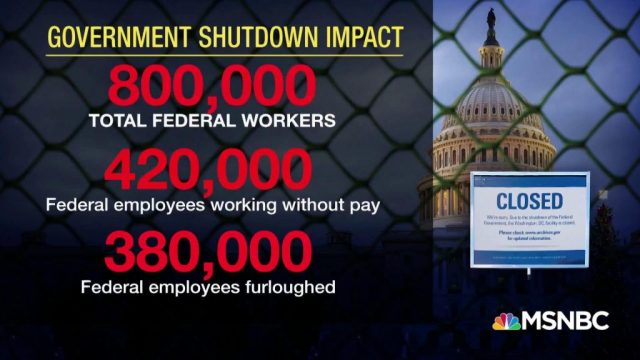
I’m sure that every person reading this article can, in some way, point to how the government shutdown is affecting their lives. It would be hard to say that it’s not, given that it’s dragged on for weeks and is now the longest in U.S. history. Sure, maybe you had to show up early to catch your flight, or maybe you couldn’t renew your passport. But there are many people who are actually required to work (air traffic controllers and Transportation Security Administration agents) without getting paid. But what about when federal agencies like the National Science Foundation or the Department of the Interior get shut down? What happens then?
There are many graduate students who are watching what will happen
But the ripple effects of this shutdown might be felt for a long time afterwards.
“The more frequent and the more long-running shutdowns are, the less attractive government becomes as a place to work for scientists and engineers.”
John Holdren, former director of the White House Office of Science and Technology under President Obama
The concern is that young scientists will take their education, training and skills somewhere else. Which would end up with a federal brain drain from agencies where scientists help policymakers make critical decisions. I won’t make this a political article, but it does beg the question as to why the federal government is at the mercy of politicians in this regard? There are many countries throughout the world that don’t operate under this model, so it makes you wonder why the U.S continues it? Especially if it means that federal employees aren’t getting paid, or that citizens aren’t getting the critical services that they need.
The federal government needs young workers to help research, but maybe there’s something larger going on. Maybe the shut down is helping to deter young people from wanting to join the federal government, and that’s really what people want? Ok, I said I wasn’t going to make this political, but it’s right there for the taking.
An agency that could certainly suffer is NASA. Taryn Black, a graduate student studying geoscience at the University of Washington has considered working there. But since this most recent shutdown, she’s a little wary, especially from a financial insecurity perspective. All that said, the sciences are only one area that is being hit hard. Technology is an area that will also be impacted by the government shutdown as patents may not be approved. When this ends, the Trump administration should consider the impact of having politics and the bureaucracy so closely tied together.
